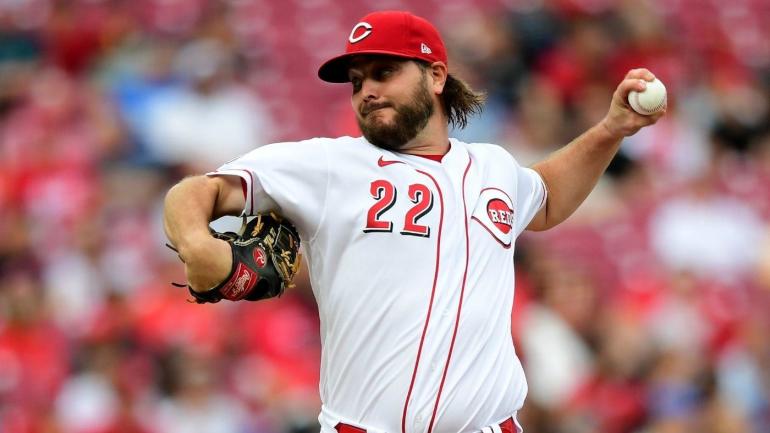
The Chicago Cubs made a surprise addition to their roster on Friday, claiming left-handed starter Wade Miley off waivers from the Cincinnati Reds.
Miley, 35 come mid-November, is expected to receive down ballot Cy Young Award consideration this winter following a quality season. In 28 starts, he compiled a 3.37 ERA (141 ERA+) and a 2.50 strikeout-to-walk ratio. His performance was worth 2.9 Wins Above Replacement, according to FanGraphs' calculations. (Baseball Reference, for its part, had Miley's contributions estimated at a more robust 5.7 WAR.)
Miley's contract includes a club option for 2022 that will pay him $10 million if exercised; conversely, he can be bought out for $1 million. The Cubs will presumably exercise Miley's option to add a potential above-average starter to the fold; the Reds, for their part, are spared from having to shell out the $1 million buyout.
Reds general manager Nick Krall told reporters that he tried to trade Miley, but couldn't find a taker over the last several weeks, according to C. Trent Rosecrans of The Athletic.
Miley's addition is an encouraging sign for Cubs fans hopeful their team will ramp up efforts this winter to be competitive. The Cubs have signaled, both publicly and privately, that they do intend to spend money this offseason. It stands to reason that Chicago could find itself in the running for one of the top free-agent shortstops, perhaps even Carlos Correa or Corey Seager, depending on how high the bidding gets.
Contrariwise, Miley's subtraction is a discouraging sign for Reds fans hoping their team will do the same. This is the second time since the end of the World Series the Reds have committed a salary-dump maneuver; earlier this week, they traded catcher Tucker Barnhart to the Detroit Tigers for a player considered to be a non-prospect. At least in that instance, the Reds could point to the presence of emerging backstop Tyler Stephenson as a reason to move on from Barnhart; not so here. In both cases, it's clear that the Reds are prioritizing financial savings at the cost of their roster.
"[Going] into 2022, we must align our payroll to our resources and continue focusing on scouting and developing young talent from within our system," Krall said after the Barnhart trade.


















